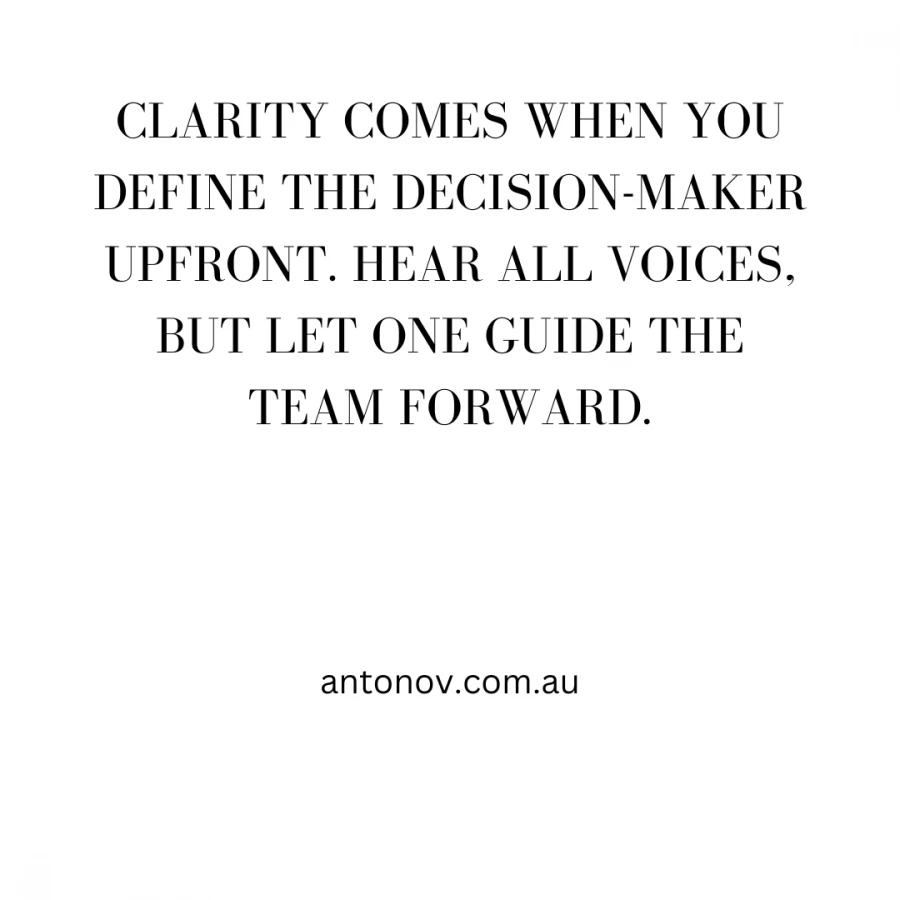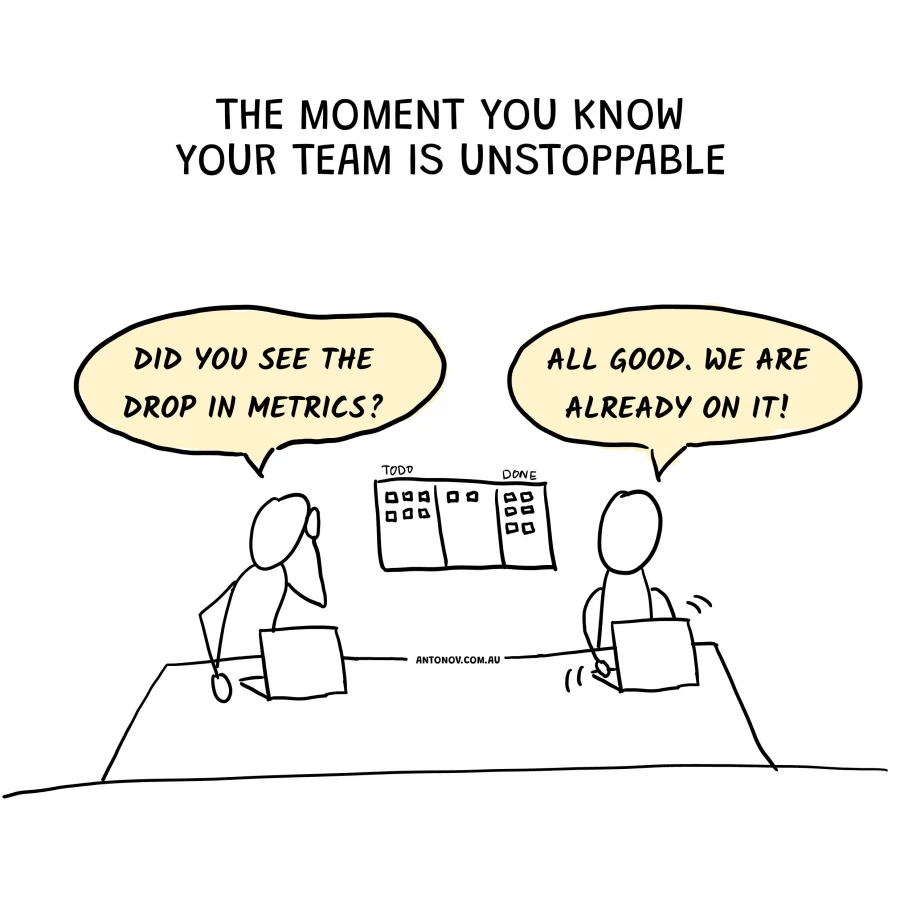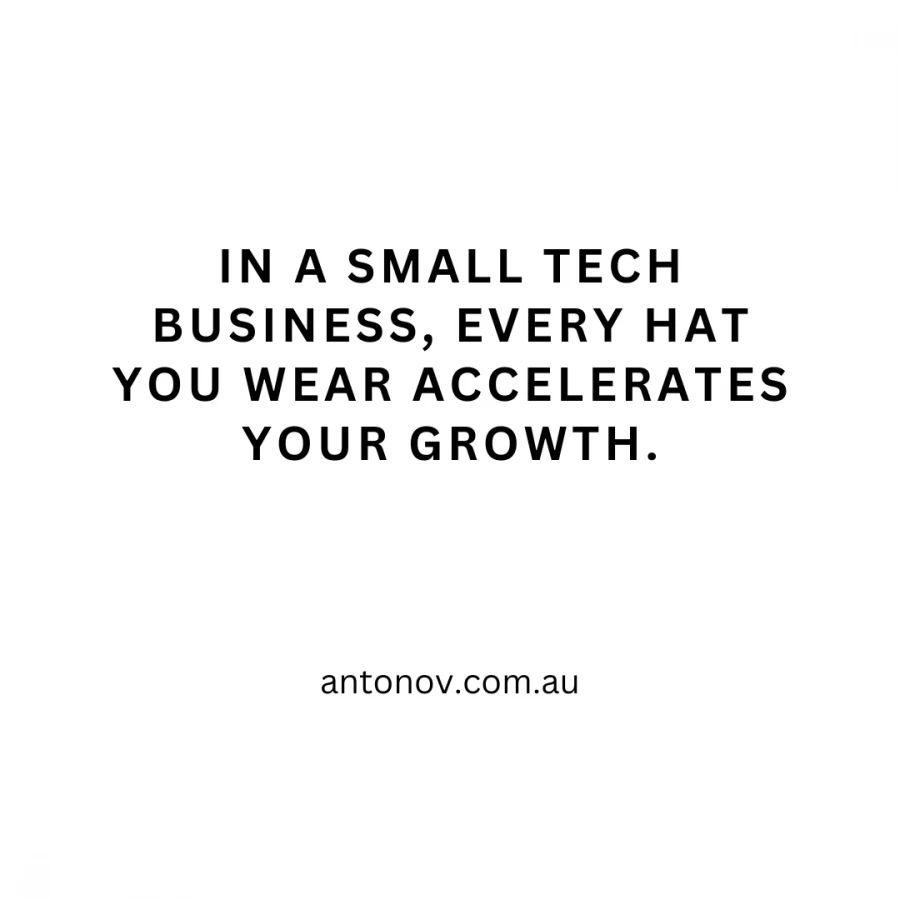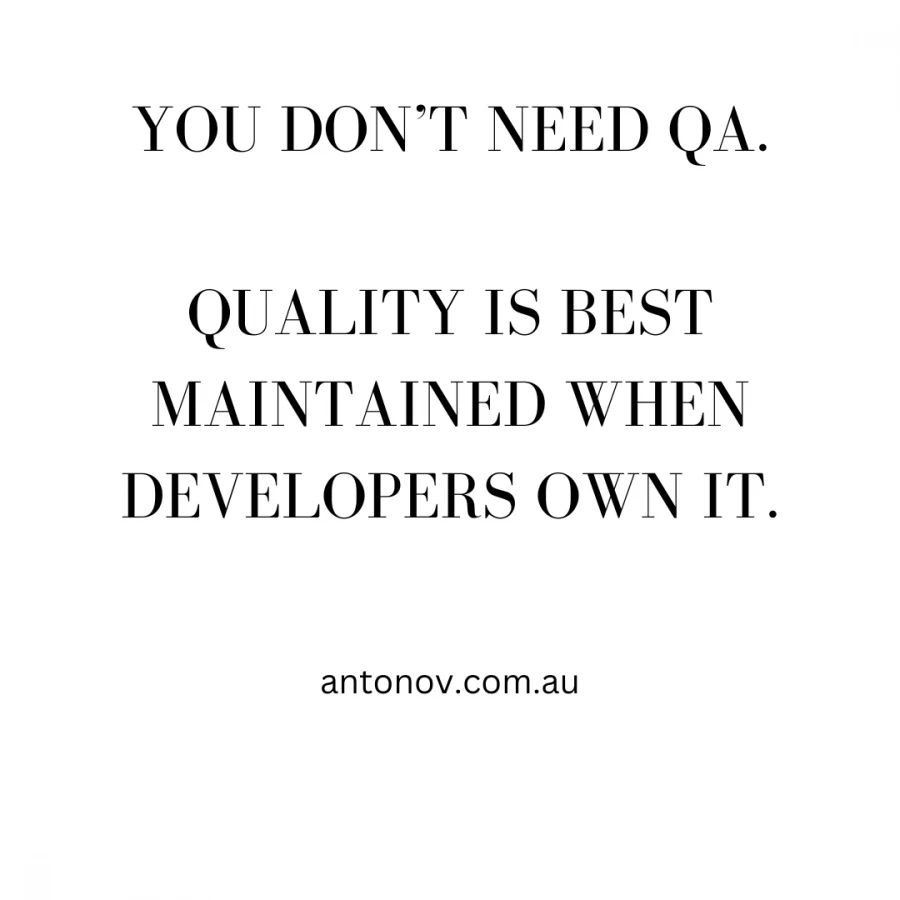I'm a father of three from Sydney, a Product Director and a Product Coach. I write about product management and run the Product Manager community.
Subscribe to receive digest emails (1 per month).
Info
Posts with Business tag.
-
Silos.
Break them whenever you see them.
Silos keep teams from seeing the whole market picture.
Silos risk losing sight of the customer, prioritising internal goals and creating a fragmented experience.
Silos slow everything down - teams hold onto information, delaying solutions.
Silos leave teams blind to risks outside their scope. -
Expertise vs open-mindedness.
Sometimes it's hard to tell if someone's perspective is genuinely the best approach or if they're just anchored in familiar thinking. What if they don't even know what “awesome” could look like?
On the other hand, knowing when to hold your ground versus when to let things go can be even trickier. What if I don't know what “awesome” feels like and am just comfortable with my usual approach? -
Define who's making the call before a debate starts.
That person takes in everyone's input but in the end they own the final decision.
It cuts down on endless debates and helps the team align around a single direction - even if not everyone agrees at first.

-
A short post about unstoppable teams.
-
All teams will face this moment sooner or later.
Torpedoes hit and chaos erupts. This feels like the end.
You see those who freeze and are lost in analysis or despair. Others grab buckets, extinguish fires and patch the holes. Those who can't handle the shitstorm often leave or, worse, switch off - but the team that stays learns.
Each crisis builds resilience and over time, the screams fade, the paralysis lessens and the team grows steady.
One day, the torpedo hits again but nobody panics. Everyone acts, shoulders the load and trusts each other to hold the line.
That's the moment you know your team is unstoppable.

-
A playbook for product managers and tech leads who want faster innovation and deeper team buy-in.
Protecting Discovery: A Playbook for Product Managers
Audience: Early-career and seasoned Product Managers, Product Owners, and cross-functional leads who want to lift team creativity and ship products customers rave about.
Why Rushing to Solutions Backfires
- Solution-first thinking kills curiosity. The instant you pitch a fix, the room defaults to critique rather than exploration.
- Creativity needs slack. When discovery is compressed, edge cases, fresh perspectives, and customer nuance vanish.
- Ownership drives quality. Teams fight for ideas they helped shape; they resist ideas handed down.
Common Scenarios Where Discovery Gets Short-Circuited
Situation Typical Reaction Better Move Stand-up uncovers a blocker PM offers a quick workaround Pause: ask “What does great look like?” Stakeholder demands a feature PM drafts the PRD overnight Run a lightning discovery workshop Designer shows early mock PM requests tweaks Invite engineers to stress-test assumptions
The Discovery-First Framework
1. Frame the Problem, Not the Fix- Clarify the friction: user pain, market gap, or workflow snag.
- Share constraints: budget, timeline, regulatory, tech stack.
- State the desired outcome: measurable impact or customer behaviour change.
2. Hold the Space- Use open prompts:
- “Where does this break for users?”
- “What edge cases worry you?”
- Embrace silence - ideas bloom in the gap.
- Capture themes, not verdicts.
3. Invite Diverse Voices- Engineers for feasibility checks.
- Designers for journey mapping.
- Sales/Support for frontline insights.
- Reference models like Atlassian's Team Playbook “Discovery Play” for facilitation.
4. Convert Insights into Experiments- Draft thin-slice prototypes or assumption tests.
- Prioritise by risk vs. learning value.
- Track outcomes in a shared dashboard (e.g. Productboard, Jira).
5. Guard the Vision, Not the Path- Keep goals visible: OKRs, North-Star metric.
- Let the team iterate on execution details.
- Step in only to re-align on purpose, not on pixel placement.
Quick Reference: Discovery-Boosting Questions
- “What's the riskiest assumption here?”
- “If we had unlimited time, what would we explore first?”
- “How might a power user break this?”
- “Which customer quote captures the pain best?”
-
Agility is misunderstood. True agility adapts to change without succumbing to chaos. It's never about rushing decisions.
The best teams balance flexibility and structure. Agility thrives on collaboration, iterative progress and responsiveness - anchored by clear direction. Without this balance, chaos replaces speed and quality falls victim to a mirage of progress.
Agile isn't a strategy. It's how strategies breathe.
Agile vs Strategy -
Using no-reply emails puts up a barrier and can leave customers feeling ignored.
Instead, businesses should use email addresses that invite replies and ensure responses. It's a simple way to build stronger relationships and gather valuable feedback. -
Leadership Is the Ceiling
If your team isn't performing at its best, it may not be a talent problem - it might be a leadership ceiling.
“Why isn't my high-performing team delivering?”“How do I unlock my team's full p... Read more -
This is for: Founders, Product Managers (PMs) and Product Designers (PDs) in fast-moving tech teams who ask, “How do we stop duplicate work and ship faster?”
TL;DR
Role clarity is oxygen. Let PMs own direction and PDs own experience. Protect calendars, write before debating, adjust volume by phase and track one metric that matters. Ship faster, sleep better.
1. Draw the Line Early
Product Manager (PM)- Core focus: market and viability risk
- Typical questions: “Will people pay for this?” “Does it move the North-Star metric?”
- Key output: one-pager covering purpose, success metrics and trade-offs
Product Designer (PD)- Core focus: usability and desirability risk
- Typical questions: “Can customers complete the task?” “Where do they stumble?”
- Key output: clickable prototype showing flow, copy and edge states
On your next discovery call, let the PM capture market insights while the PD sketches pain-point journeys. They'll walk away owning different artefacts - no rewrites, no turf wars.
2. Guard the Calendars
Red flag: PM trapped in Figma tweaking icons.
Red flag: PD buried in cost–benefit spreadsheets.
Fast filter:- If the task changes product vision, it belongs to the PM.
- If the task changes product surface, it belongs to the PD.
This discipline frees the roadmap and keeps creative energy high.
3. Write First, Talk Second
- PM posts a succinct one-pager to Slack outlining problem statement, success measures and known constraints.
- PD replies with a Figma link showing interactive flow, micro-copy and empty-state behaviour.
- Only then schedule a 30-minute debate. Decisions lock in, iteration time halves.
4. Phase-Based Volume Control
- Framing / Discovery – PM's voice dominates; market-sizing memo appears.
- Ideation & Prototyping – PD leads; high-fidelity Figma frames drop.
- Build & Polish – PD still loudest; design-system tokens freeze.
- Launch & Iterate – PM turns the volume back up; KPI dashboard lights up.
5. Share One Scorecard
Choose a single, public metric - activation lift, task-success rate or first-week retention. Both crafts pull the same lever, killing silos and politics.
6. Outcomes You Can Expect
- 25–40 % faster time-to-decision (anecdotal data from five Aussie SaaS teams).
- Higher designer morale: fewer context switches, deeper craft.
- Sharper product bets: PMs stay market-obsessed, avoiding “feature museum” creep.
Recommended Tools & Rituals
- Figma for rapid prototypes (PD).
- Miro/FigJam for story mapping (shared).
- Amplitude or Mixpanel for the single metric (PM).
- Weekly 15-minute “Line-Check” stand-up: confirm who owns which decisions this sprint.
-
Working at a small tech business shapes your career differently.
You'll juggle strategy, customer service, product development and beyond. The small team demands versatility, immersing you in every aspect of the business. This hands-on experience accelerates learning and builds skills quicker than larger organisations ever could.
For ambitious minds craving growth and variety, nothing compares.

-
Broken Isn’t Always Yours
If you've ever felt like something's off in your team...a process dragging, communication breaking down or decisions getting delayed but didn't say anything because “it's not your job to fix it,” you'... Read more -
Dedicated QA creates more problems than it solves.
When a dev team owns quality, accountability stays in the right hands. Bugs are fewer, fixes are faster and processes tighten.
Introducing dedicated QA shifts that balance.
Developers grow complacent, relying on testers to catch mistakes. Tools diverge, creating inefficiencies. QA often duplicates what devs should already handle.
Quality isn't a separate role. It's a shared responsibility embedded in every line of code.

-
10 Insights from "Lessons Learned from 1,000+ YC Startups with Dalton Caldwell"
I recently listened to Lenny's podcast, where he spoke to Dalton Caldwell, Managing Director at Y Combinator, and discovered a few interesting insights. Here are 10 of them:
To succeed in a startup ke... Read more -
SCQA Framework: Examples and How to Use It
The SCQA (Situation, Complication, Question, and Answer) framework, also known as the Minto Pyramid Principle, is a communication and problem-solving tool that breaks down complex ideas into simpler,... Read more -
Changes at Basecamp
Basecamp went big this week!
There's a lot of hate and negative vibes around the recent Basecamp's corporate policy changes. See the announcement “No more societal and political discussions on our com... Read more -
Product Management FAQs
Product managers decide what to build next. They are accountable for the overall success of the product.
Product Managers drive the vision, product strategy, user experience, execution, and success of... Read more -
Building Trust with a Founder
First of all, make sure that you understand the founder's context, the things the founder cares about and worries about, and the overall vision.
One of the most important things is to get to the bott... Read more -
Tips for Aspiring Product Managers
As a Product Manager, you are given the opportunity to solve customer and business problems.
It all starts with learning about business goals and understanding how the business operates. Simultaneousl... Read more -
How to Get Into Product Management With No Experience
Getting into product management with no experience may seem daunting, but you can achieve your goal by breaking it down into smaller steps. Start by taking on a pet project, reading business books, g... Read more
Feel free to reach out: [email protected].
